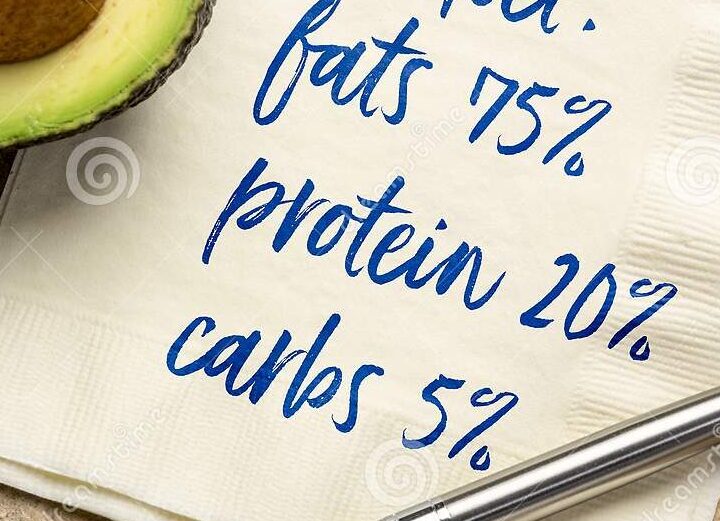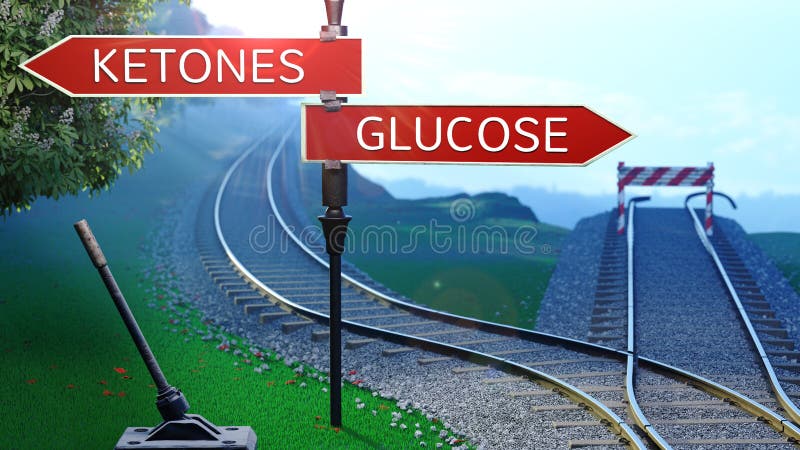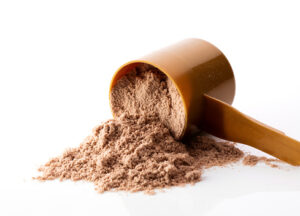I recently consulted a friend on an attempt to lose weight. She advised me to ‘Cut Crabs’ and move to a low carbs diet. I wonder how body will react to the same. If you have the same question, lets answer it in this article.

Source: Dreamstime.com
WHAT ARE CARBS AND WHAT IS THEIR ROLE IN YOUR DIET?
Carbohydrates are one of three macro-nutrients that your body requires on a daily basis, along with proteins and fats. These are biological compounds and have certain ratios of carbon, hydrogen, and oxygen atoms.
Body breaks carbohydrates into glucose i.e., the single unit sugars.
The primary role of carbohydrates is to supply energy to all cells in the body. Many cells prefer glucose as a source of energy versus other compounds like fatty acids. Some cells, such as red blood cells, are only able to produce cellular energy from glucose.Cells that require energy remove the glucose from the blood with a transport protein in their membranes. The energy from glucose comes from the chemical bonds between the carbon atoms. Cells in our bodies break these bonds and capture the energy.
HOW MUCH INTAKE IS NECESSARY FOR YOUR BODY?
The Dietary Guideline for Americans suggest that most adults get 45 to 65 percent of their calories from carbohydrates. Since carbohydrates contain four calories per gram, one should consume 225 to 325 grams of carbohydrates on a daily basis on a 2000-calorie diet.
According to the health departments, one should consume at the very least the recommended dietary allowance (RDA) of carbohydrates which is 130 grams for adults, 175 grams for women who are pregnant and 210 grams for women who are breastfeeding. Furthermore, women should consume 25 grams of fiber daily , while men should consume 38 grams of fiber daily.
The regulation of a diet low in carbohydrates ranges from 25g to 150g. It can be sub-divided as –
- 100g to 150g is considered a moderate carbs diet.
- 50g to 100g is a low carbs diet.
- 20g to 50g falls into a ‘low’ low carbs diet. This stage leads to an effect upon metabolism.
WHAT HAPPENS WHEN YOU CUT CARBS FROM YOUR DIET?
When one cuts carbohydrates from the diet, the body finds alternate ways to generate energy –
Every cell of the body produces the energy currency of the body i.e.,ATP. Factually, triglyceride molecules stored in fatty tissue are the body’s main source of stored energy. This is contrary to the main notion that glycogen is the main source in the body.
When body goes low carbs diet, the brain uses its main fuel source from glucose to ketone bodies, also known simply as ketones. Ketones are chemicals generated when fatty acids are broken down. When carbs are not available to provide your body with the energy it requires, it produces them.When the body produces large amounts of ketones for energy, it enters ketosis.This condition is not always dangerous and is distinct from ketoacidosis, a complication of uncontrolled diabetes.Thus, it can be said that it is a direct result of a ‘low’ low carbs diet.
Source: Dreamstime.com
It is essential to note that ketones are the brain’s principal fuel source during times of hunger, it still requires roughly one-third of its energy from glucose obtained through muscle breakdown and other sources inside the body. To conclude, even though body finds an alternate to function under a low carbohydrate diet; one must not go beyond the recommended limit.
WHAT IS PRIMARY EFFECT OF LOW-CARBS DIET?
LOSS OF WEIGHT/WATER WEIGHT : Reducing your carbs intake can help you lose weight in general. Replacing carbohydrates with protein or fat can help you feel fuller and eat fewer calories overall, resulting in weight loss. Furthermore, due to a rapid loss of water weight, very-low-carb diets typically promote rapid weight loss in the first few weeks. This is due to the fact that every gram of carbs contains three gram of water in your body.
PRO-LONGED EFFECTS –
- WEAKNESS OR ILLNESS : Since carbs are primary source of energy, removing carbs can lead to a tired, weak and fatigued body. It may also lead to pains like stomachache and headaches.
- BRAIN FOG : In the absence of carbohydrates, body tries to keep up normal blood sugar levels. Initially, it can lead to a fizzy or foggy brain.
- CHOLESTEROL LEVELS : When one reduces or eliminates carbs from your diet, the fat intake increases. A regular and high consumption of healthy fats lead to the management of good cholesterol in the body i.e.,triglycerides. A regulation of this good cholesterol leads to a healthy heart. On the contrary, high fat consumption can also lead to an increase in bad cholesterol. This can harm the cardiovascular health.
- MOOD FLUCTUATIONS : One study found people who followed low-carb diets over time had less serotonin in their brains than those who were on low-fat diets. Healthy serotonin levels help guard against anxiety and depression.
- EFFECT ON LIVER : Liver treats majority of the fat in our body. A low-carbs diet equals to a high-fat diet. This means that the liver has a lot more fat to process.
- METABOLIC HEALTH : Decreasing carb intake may help prevent some of the risk factors associated with metabolic syndrome, such as high blood pressure, elevated blood sugar, and belly fat.
It is pertinent to mention that no particular research has been made on complete elimination of carbs. The research only factors in the low-carbs and very-low-carbs situations.


